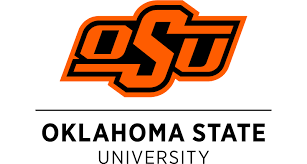Derrell S. Peel, OSU Extension Livestock Marketing Specialist
August is a tough time for fed cattle markets to move higher, but the market seems poised to break out from the constraints of the first half of the year as we move into the last part of the third quarter. Meanwhile, auction calf and stocker prices have moved counter-seasonally higher in July-August while feeder cattle markets, which typically increase through the summer have shown a strong seasonal price increase over the summer. Cull cow prices have pulled back from summer peak prices, moving into fall seasonal declines, but remain above year ago levels.
The August USDA Cattle on Feed report pegged July feedlot placements at 1.739 million head, 91.9 percent of last year, with July marketings at 1.9 million head, 95.5 percent of one year ago. The August 1 cattle on feed total was 11.074 million head, 98.1 percent of 2020 levels. Feedlot inventories continue to fall, partly seasonally, but also reflecting the cleanup of the backlog of feedlot cattle from earlier in the year. August represents the sixth consecutive monthly decline in feedlot inventories from the February peak, a decrease of 1.032 million head or 8.5 percent over the six months. In the previous five years, the average feedlot inventory decline from the spring high to summer low has been 6.2 percent.
Carcass weights provide more indication that feedlots are getting more current. Steer and heifer carcass weights dropped below year ago levels in May and continue below year earlier levels. Carcass weights reached a seasonal low in June, a tad later than the normal May low and are rising seasonally into the last part of the year. Most recently, weekly steer carcass weights were 896 pounds, down 10 pounds year over year but still 18 pounds heavier than 2019 levels. Heifer carcass weights are currently 817 pounds, down 15 pounds from last year but 11 pounds above 2019 at this time. In addition to improved feedlot currentness, lower carcass weights also reflect the impact and incentives that follow from sharply higher feedlot cost of gain. This should help hold carcass weights in check in the coming months.
Cattle market optimism is clearly reflected in futures markets. Live cattle futures for December are $10/cwt. above current levels with an April 2022 level of $140/cwt. Feeder cattle futures have been strong this summer and are even higher this fall. In fact, weak feeder cattle basis in June and July suggests that the futures optimism was somewhat ahead of the cash market reality. Cash feeder cattle markets continue to adjust to higher feed costs, partly in terms of general price levels but particularly in the relative prices of lightweight and heavy feeder cattle. The flattening of the price line across weights translates into higher value of gain potential for added feeder cattle weight gain. Increased optimism and less volatility would be greatly appreciated as cattle markets finish 2021 and look ahead to the coming year.













